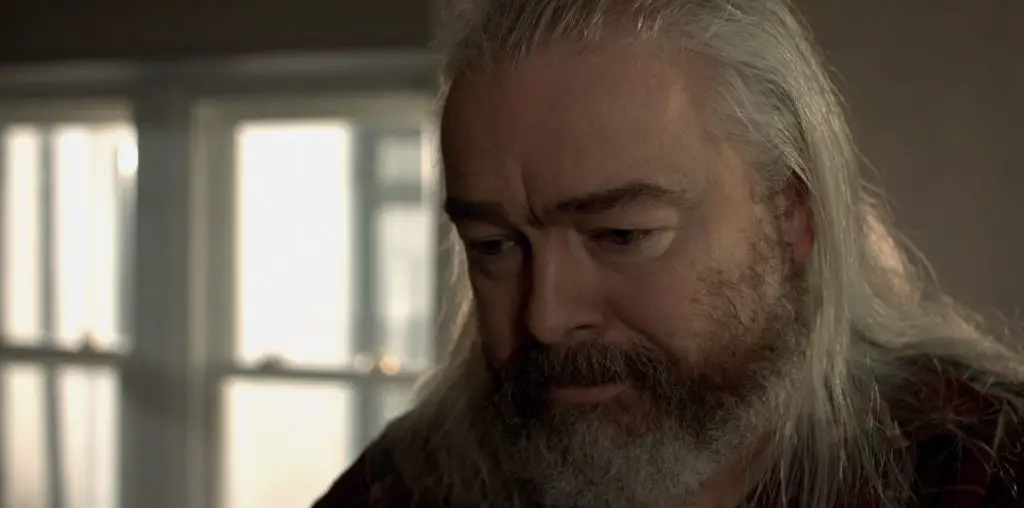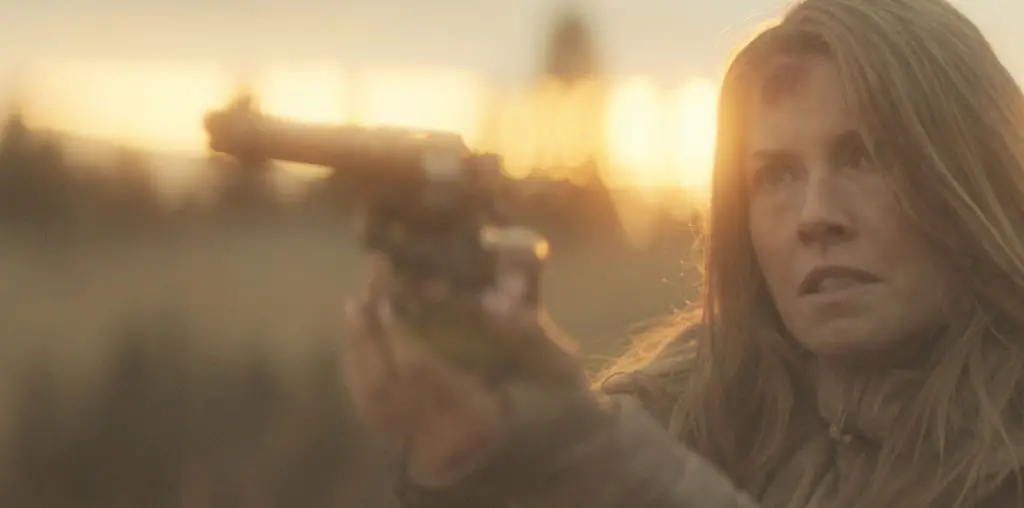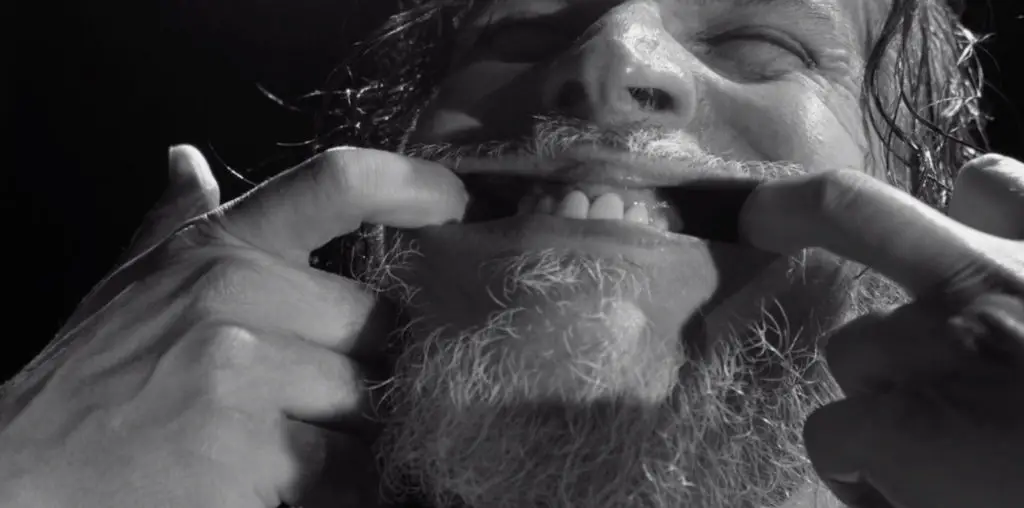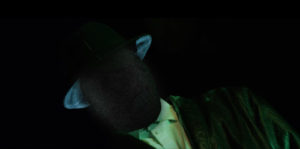
A dark and cryptic tale of self-discovery is the simplest way to explain Blackhatter. It’s meant to make viewers think about the sins they’ve committed and look inward at themselves, evaluating who and what they are. Writer/director Amanda Gecewicz and co-writer Sarah Quinn create a truly cryptic atmosphere, but their message remains clear all the way to the end. More than anything else, the short dramatic thriller appears intended to educate all watching and allow them to understand the intricacies of human nature. The filmmakers are successful here, but that is just one of the many things to love about the film.
Drew (Sean Ohlman) decides to rob a convenience store, but the task that he believed would be quick and easy proves to be far more complicated than anticipated. During the robbery, he is confronted by a young girl, Claire (Veronica Veers), and a dark figure known only as Blackhatter (Tom Reed), who quickly turn Drew’s life on its head. He’s forced to face his demons as everything seems to go wrong. When others begin to suffer, he must confront Blackhatter and the sins of his past.
In the first thirty seconds or so, I questioned the validity of Ohlman’s performance as he prepares to rob the store. It seemed odd that his demeanor was so calm and unassuming, almost like he and the writers were attempting to throw audiences off regarding Drew’s intentions. However, as Blackhatter begins to develop throughout the course of just eight short minutes, it becomes clear that there is more to the character than initially meets the eye. He’s dynamic, multidimensional, and misunderstood in several ways. I soon understood that the actor’s portrayal isn’t off but rather is perfect. He brings to life a character that mirrors the many struggling individuals in the real world, individuals who are constantly conflicted, and unsure of the correct answer. Along with the other cast members, Ohlman has a clear understanding of how to imitate real life and how to appeal to viewers. He’s brilliant and becomes the most integral part of the film’s success.
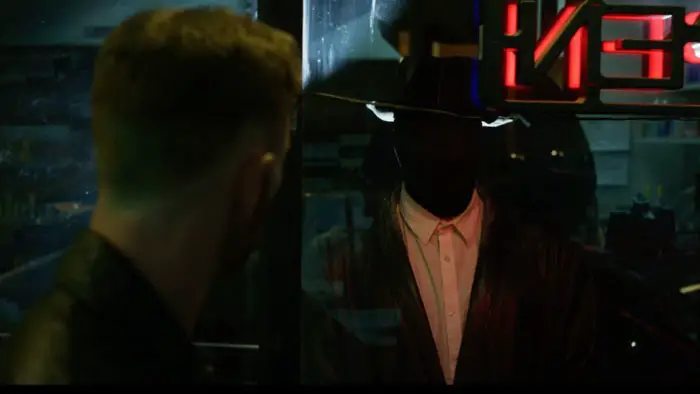
“…Claire, and a dark figure known only as Blackhatter…quickly turn Drew’s life on its head.”
The narrative is antagonistic and interestingly tantalizing, inviting spectators to decipher its meaning. There are moments throughout Blackhatter when audience members are forced to question what is real and what is a figment of the imagination. While the conclusion answers most questions, the narrative keeps viewers on edge, reeling as they search for answers. The fact that onlookers struggle from time to time with understanding what’s real and what isn’t invites them to play a role in Drew’s arc.
There’s an epiphany toward the conclusion when viewers truly understand the film’s purpose. At this moment, emotion reaches an all-time high, and the intensity is stronger than ever before. Audiences are no longer attempting to understand what’s real but instead transition to a place where they feel like they have some skin in the game, a rooting preference, and begin to choose sides. If the film wasn’t already inviting enough, these closing seconds are sure to appeal to everyone everywhere.
From acting to storytelling to visuals, Blackhatter has it all. It appeals to the senses just as much as the emotional side and is unrelenting in its attempt to reach all audience members. The film is cryptic at times, but what the filmmakers are attempting to express, and what eventually becomes clear, is beautiful, heartbreaking, and honest. Gecewicz’s short dramatic thriller is a brilliant work of art that will likely attract viewers from all walks of life, encourage them to question everything, and, most importantly, want to do the right thing.
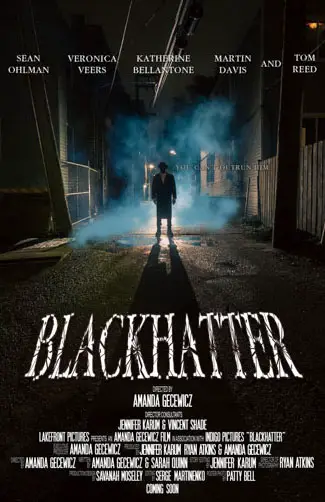
"…appeals to the senses just as much as the emotional side..."
